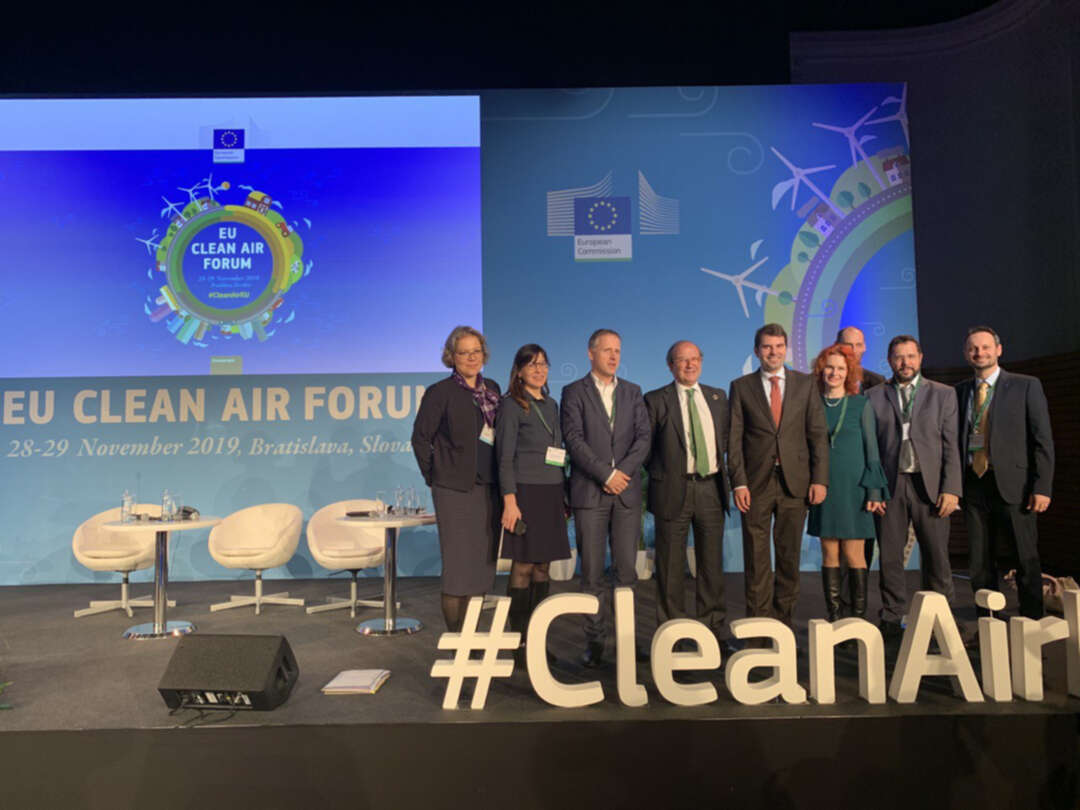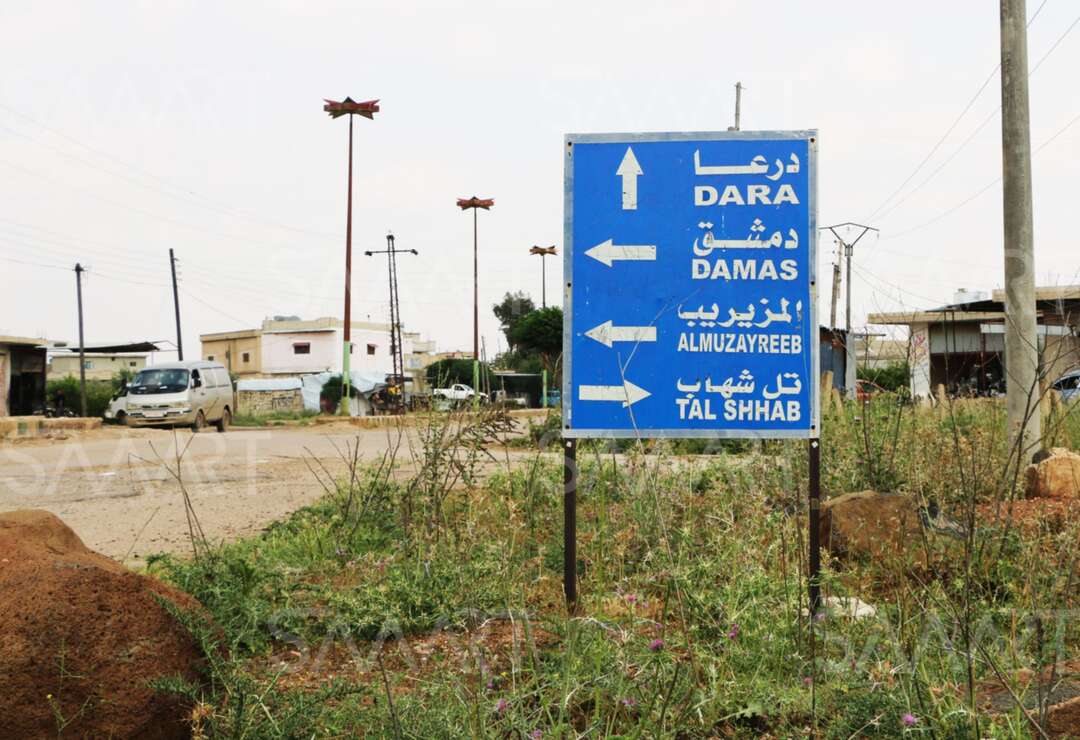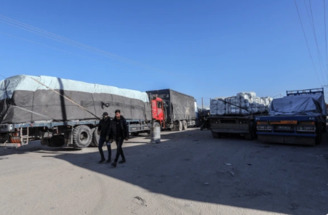-
The 2nd European Reading Air Forum

The first EU Clean Air Forum was held in November 2017 in Paris. Then the Forum ended with a clear message: solutions for improving air quality are still available, but in order to successfully combat air pollution, we need to work together between economic sectors, at different levels of decision-making, in different policy areas, and with citizens.
Today, air pollution continues to cause respiratory and cardiovascular diseases. Air pollution is still an environmental cause of premature death in Europe. The World Health Organization provides statistics driven by Europe:
- more than 130 cities across Europe do not meet air quality standards;
- polluted air costs over € 4 billion in healthcare and € 16 billion over lost days;
- particulate matter and nitrogen dioxide are major air pollutants in cities and are very harmful to human health;
- 72% of Europeans want publicity to improve air quality;
- 36% of lung cancer deaths;
- 34% of stroke deaths;
- 27% of deaths from heart disease.
We don't see dirty air, but it can be deadly. Clean air is essential for a healthy human life and for the planet, these benefits become a sound economic foundation for business.
Europe currently spends at least € 4 billion a year on clean air. Clean air monitoring not only solves many issues, it also creates new business and job opportunities. Steps must be taken as soon as possible to take action to reduce hazardous emissions and promote further innovations.
The introduction of new approaches in business is an important area of business today. Some areas that contribute in improving air quality may be related to the production of "clean transport" - such as electric trucks or buses. Modernization of existing, polluting vehicles, including shipbuilding, is needed. Society must apply aircraft quotas too.
Positive environmental factors include:
- Usage of renewable energy sources, such as wind and solar.
- Implementation of clean industrial processes.
- Improving energy efficiency by repairing buildings.
- Replacement of old appliances, such as old ovens, boilers and refrigerators by those that consume less energy.
- Better animal feeds and low-emission fertilizers, manure storage and process interventions.
The above refers to ways to overcome the environmental crisis. I would point out that not applying the measures does not mean economic stability. Polluted air results in the loss of € 3 billion in lost profits from lost crops and € 1 billion in construction damage. In addition, climate change incurs non-renewable losses. For example, this year's flood in Venice in a few weeks has caused losses of 1 billion euros, not to mention the loss of cultural heritage of mankind.
The event was held in a high-level closed format with the participation of the first persons of the Slovak Republic: recently elected President Suzana Caputova, Prime Minister Peter Pellegrini, State Secretary of the Ministry of Ecology Norbert Kurilla, Minister of Ecology Laszlo Solymos, Minister of Ecology of the Czech Republic Richard Brabec, Minister of Tourism of Austrian Republic Maria Patek, Minister of Ecology of the Republic of Finland Terhi Leohtonen, Euro Commissioner for Ecology Karmenu Vella, Ministers of Ecology of the Federal Republic of Germany and Netherlands, Members of the Euro Commission, Euro Council, Euro Parliament, members of the World Health Organization.
Such cooperation of the international community has a positive effect on the creation of a single environmental organization. Today, one-off meetings do not bring the necessary result.
Officially, Ukraine did not participate in the event, but is actively negotiating with Members of the European Parliament on the implementation of environmentally significant decisions.
You May Also Like
Popular Posts
Caricature
BENEFIT AGM approves 10%...
- March 27, 2025
BENEFIT, the Kingdom’s innovator and leading company in Fintech and electronic financial transactions service, held its Annual General Meeting (AGM) at the company’s headquarters in the Seef District.
During the meeting, shareholders approved all items listed on the agenda, including the ratification of the minutes of the previous AGM held on 26 March 2024. The session reviewed and approved the Board’s Annual Report on the company’s activities and financial performance for the fiscal year ended 31 December 2024, and the shareholders expressed their satisfaction with the company’s operational and financial results during the reporting period.
The meeting also reviewed the Independent External Auditor’s Report on the company’s consolidated financial statements for the year ended 31 December 2024. Subsequently, the shareholders approved the audited financial statements for the fiscal year. Based on the Board’s recommendation, the shareholders approved the distribution of a cash dividend equivalent to 10% of the paid-up share capital.
Furthermore, the shareholders endorsed the allocation of a total amount of BD 172,500 as remuneration to the members of the Board for the year ended 31 December 2024, subject to prior clearance by related authorities.
The extension of the current composition of the Board was approved, which includes ten members and one CBB observer, for a further six-month term, expiring in September 2025, pending no objection from the CBB.
The meeting reviewed and approved the Corporate Governance Report for 2024, which affirmed the company’s full compliance with the corporate governance directives issued by the CBB and other applicable regulatory frameworks. The AGM absolved the Board Members of liability for any of their actions during the year ending on 31st December 2024, in accordance with the Commercial Companies Law.
In alignment with regulatory requirements, the session approved the reappointment of Ernst & Young (EY) as the company’s External Auditors for the fiscal year 2025, covering both the parent company and its subsidiaries—Sinnad and Bahrain FinTech Bay. The Board was authorised to determine the external auditors’ professional fees, subject to approval from the CBB, and the meeting concluded with a discussion of any additional issues as per Article (207) of the Commercial Companies Law.
Speaking on the company’s performance, Mr. Mohamed Al Bastaki, Chairman BENEFIT , stated: “In terms of the financial results for 2024, I am pleased to say that the year gone by has also been proved to be a success in delivering tangible results. Growth rate for 2024 was 19 per cent. Revenue for the year was BD 17 M (US$ 45.3 Million) and net profit was 2 Million ($ 5.3 Million).
Mr. Al Bastaki also announced that the Board had formally adopted a new three-year strategic roadmap to commence in 2025. The strategy encompasses a phased international expansion, optimisation of internal operations, enhanced revenue diversification, long-term sustainability initiatives, and the advancement of innovation and digital transformation initiatives across all service lines.
“I extend my sincere appreciation to the CBB for its continued support of BENEFIT and its pivotal role in fostering a stable and progressive regulatory environment for the Kingdom’s banking and financial sector—an environment that has significantly reinforced Bahrain’s standing as a leading financial hub in the region,” said Mr. Al Bastaki. “I would also like to thank our partner banks and valued customers for their trust, and our shareholders for their ongoing encouragement. The achievements of 2024 set a strong precedent, and I am confident they will serve as a foundation for yet another successful and impactful year ahead.”
Chief Executive of BENEFIT; Mr. Abdulwahed AlJanahi commented, “The year 2024 represented another pivotal chapter in BENEFIT ’s evolution. We achieved substantial progress in advancing our digital strategy across multiple sectors, while reinforcing our long-term commitment to the development of Bahrain’s financial services and payments landscape. Throughout the year, we remained firmly aligned with our objective of delivering measurable value to our shareholders, strategic partners, and customers. At the same time, we continued to play an active role in enabling Bahrain’s digital economy by introducing innovative solutions and service enhancements that directly address market needs and future opportunities.”
Mr. AlJanahi affirmed that BENEFIT has successfully developed a robust and well-integrated payment network that connects individuals and businesses across Bahrain, accelerating the adoption of emerging technologies in the banking and financial services sector and reinforcing Bahrain’s position as a growing fintech hub, and added, “Our achievements of the past year reflect a long-term vision to establish a resilient electronic payment infrastructure that supports the Kingdom’s digital economy. Key developments in 2024 included the implementation of central authentication for open banking via BENEFIT Pay”
Mr. AlJanahi concluded by thanking the Board for its strategic direction, the company’s staff for their continued dedication, and the Central Bank of Bahrain, member banks, and shareholders for their valuable partnership and confidence in the company’s long-term vision.
opinion
Report
ads
Newsletter
Subscribe to our mailing list to get the new updates!





















